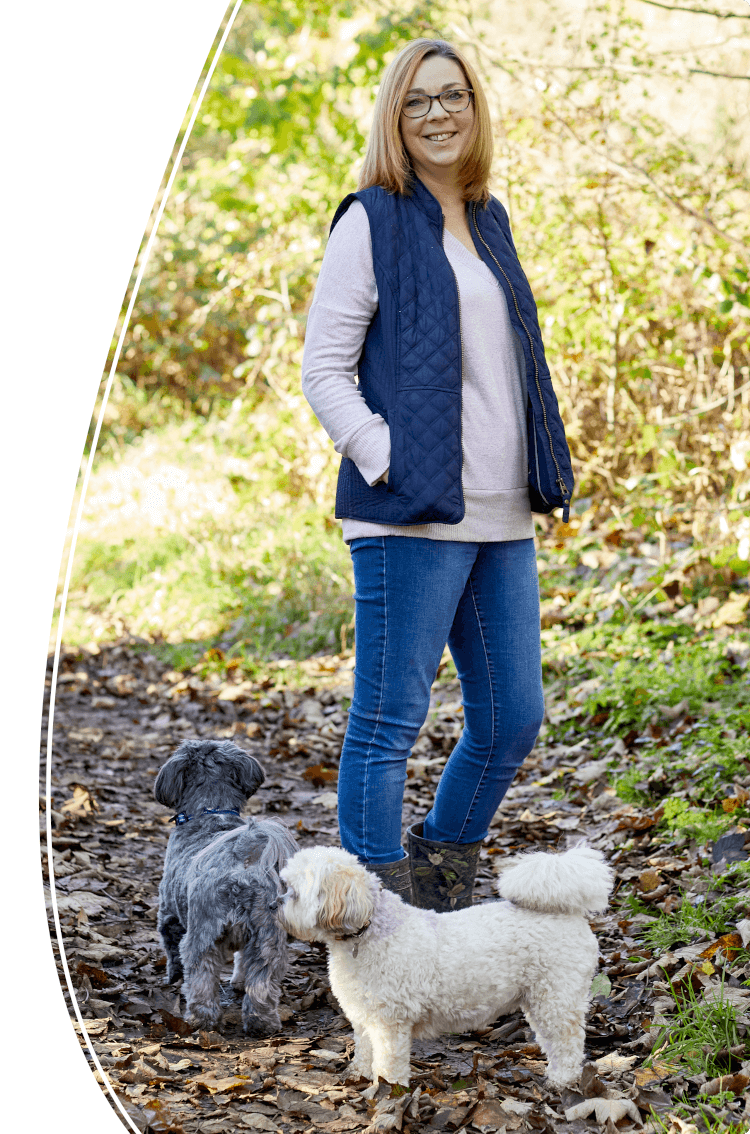Finding calm amid the festive rush: how to manage Christmas stress, overwhelm, and loneliness by practising self-kindness.

The festive season is often painted as a time of joy, laughter, and togetherness, but the reality can be very different for many of us. Between the extra work, social commitments, financial pressures, and family dynamics, it’s easy to feel stressed, anxious and overwhelmed.
And for some, the festive season can bring feelings of loneliness or highlights the absence of loved ones, making this time of year emotionally challenging.
If you’ve ever felt like the “festive cheer” isn’t for you then you’re not alone and please remember that it’s OK to feel that way. Understanding what’s happening in your brain can help you navigate this period with more calm, resilience, and importantly, self-kindness.
Why Christmas stress, overwhelm and loneliness can feel so intense
During the festive season, many of us experience Christmas stress, overwhelm and loneliness. It isn’t just the extra commitments or shopping, it’s how our brain reacts to constant pressure. Stress hormones like cortisol and adrenaline are released when we feel overwhelmed. In short bursts, these hormones are helpful, but when they linger, our primitive survival brain can keep us in a constant state of fight, flight, or freeze.
Add to this our own high expectations like trying to cook the perfect dinner, buy the ideal gifts, host family visits, and meet work deadlines, and our pesky inner critic can easily take over, leaving us feeling tense, fatigued, and emotionally drained.
This inner dialogue can also lower oxytocin, the hormone linked with love, connection, and calm, making us feel less supported and more stressed. Even when we’re surrounded by people who care about us.
Understanding what happens in your brain during stress
When stress becomes constant, the body struggles to regulate cortisol and adrenaline, keeping our nervous system on high alert. This can leave us feeling tense, emotionally reactive, or exhausted, even when there is no immediate “danger”.
Our brains are incredibly adaptable, though, and practising small, intentional habits consistently can help regulate stress, activate the prefrontal cortex (the part responsible for reasoning and calm decision making), and restore balance. Even in the busiest season.
One of the most powerful tools we have is self-kindness. Treating yourself with compassion counteracts the pesky inner critic, boosts oxytocin, and helps you navigate both stress and loneliness with more ease.
The impact of loneliness during the festive season
For many, the festive season can amplify feelings of loneliness, grief, or isolation. Social disconnection activates the same neural pathways as physical pain, which is why emotional loneliness can feel so intense.
Even when surrounded by others, unmet expectations or emotional disconnection can heighten feelings of anxiety and stress. Recognising these feelings is important. You don’t have to push yourself to be “happy” or “cheerful” if that doesn’t reflect how you feel.
Acknowledging your emotions with empathy and self-kindness is the first step to managing them. Doing so helps calm the stress response in your brain and allows your nervous system to settle.
Practical ways to help you manage stress, overwhelm, and loneliness
Here are some practical ways to bring calm, presence, and self-compassion into your festive season:
Pause and breathe
Even just a few deep, slow breaths can signal to your nervous system that you are safe, lowering cortisol levels and helping you feel grounded.
Try adding a simple self-kindness affirmation during your breaths, such as: “I am doing my best, and that is enough.”
Prioritise what truly matters
Ask yourself: what’s essential, and what can I let go of this year?
Your brain functions better with clarity over clutter, and self-kindness allows you to release the pressure to do everything perfectly.
Small moments of mindfulness
Mindfulness isn’t about sitting for hours; it’s about small moments of presence. Notice the warmth of your cuppa, the crunch of frost and golden leaves underfoot, or a quiet moment of calm first thing in the morning.
These tiny pauses help retrain your brain to respond with calm rather than stress and remind you to treat yourself gently in the process.
Move your body
Gentle movement like walking, stretching, dancing, or yoga, releases endorphins and supports emotional resilience.
When you move, acknowledge your effort rather than critiquing what you haven’t done. A kind thought like “I am taking care of myself” boosts oxytocin and wellbeing.
Connect meaningfully
If you’re feeling lonely, seek connection, even if it’s just in small ways. A phone call or video chat a friend, or joining a supportive community, can help lessen feelings of isolation.
Remember: quality matters more than quantity, and self-kindness means honouring your own needs in deciding how and when to connect.
Practise self-compassion
Transformation begins with kindness to yourself.
Notice your stress, overwhelm, or loneliness without judgment. Speak to yourself as you would a friend.
Small acts like lighting a candle, journaling, or taking a quiet moment all help to reinforce the message that you are deserving of care and compassion, even amidst challenge.
Embracing the season your way
The festive season doesn’t need to be perfect, or perfectly joyful, to be meaningful. By understanding the neuroscience behind stress, embracing self-kindness, and listening to your own needs, you can navigate this season with more calm, presence, and emotional resilience.
Remember: you are resilient, worthy, and deserving of peace, even when life is busy, overwhelming, or lonely.
Give yourself permission to move through this season at your own pace, embracing moments of joy whilst holding space for tougher emotions.
Support with Christmas stress, overwhelm and loneliness
If you’d like to explore how hypnotherapy could support you this festive season, I’d love to talk with you.
One gentle meaningful step at a time, I can support you to find your inner freedom from what’s holding you back and move forward to make those positive changes in your life.
You can find some helpful information in my blog, Self-care and self-kindness: Rewiring your brain for confidence and wellbeing – Katie Deacon – Hypnotherapist & Life Coach.
Or explore how I support clients with stress and anxiety here, Anxiety Hypnotherapy in Nottingham – Katie Deacon.
If you’d like to find out more you can contact me for a free 45-minute consultation by email at katie@katiedeacon.co.uk.
More Blog Articles







